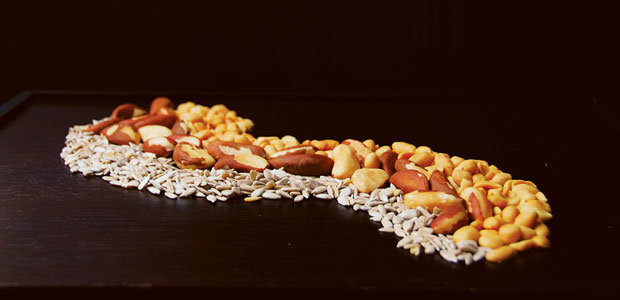Advertisement
The Copper Connection
“I’m so tired,” Janna complained while we sat on her front porch, revelling in a perfect summer evening and sipping a glass of iced herbal tea. I looked at Janna and noticed her dry, brittle hair and skin. I remembered her complaints of joint pain. Janna’s symptoms could have been a sign of any number … Continued

“I’m so tired,” Janna complained while we sat on her front porch, revelling in a perfect summer evening and sipping a glass of iced herbal tea. I looked at Janna and noticed her dry, brittle hair and skin. I remembered her complaints of joint pain.
Janna’s symptoms could have been a sign of any number of problems, including anemia, thyroid deficiency, or diabetes, but something clicked in the back of my mind.
I had shared many meals with my friend and I knew she was allergic to all kinds of nuts, hated even the thought of organ meats and mushrooms, and never allowed a morsel of banana to pass her lips.
“You might have a copper deficiency,” I suggested, recalling something I had read recently.
Copper is the third most abundant trace mineral in the human body, but sadly, the multicentre European FoodCue project, which looked at the effect of copper on human health between 2000 and 2003, found that most Westerners get too little of this essential nutrient.
Copper is at the core of normal body function. Without copper, we cannot form superoxide dismutase, the superpower of all antioxidants. Copper also helps our bodies create collagen, the protein that forms healthy joints and supple, young skin. And it has a role in helping our bodies store iron, a critical component of the formation of hemoglobin in red blood cells. Scientists in the FoodCue project also found that copper has a role in maintaining the immune system.
While actual copper deficiency is rare, experts such as James Balch, MD, and Mark Stengler, ND, authors of Prescription for Natural Cures (Wiley, 2004), agree that most Westerners should try to consume a recommended daily intake of at least 2 mg of copper through their diets.
Here are some of the health benefits you can reap by maintaining the recommended daily intake of copper.
Protection against heart disease: Research shows copper helps keep your heart in rhythm and blood pressure in check. Cholesterol also remains at healthy levels when copper levels are optimal. Copper is also a good antioxidant, so it improves your protection against heart disease and other degenerative diseases.
Improved skin and hair colour: Copper is a component of the dark pigment melanin that gives colour to hair, skin, and eyes. Melanin is a component in consistent pigmentation, so it helps prevent blotchy skin coloration. Copper supplements may also help reverse greying hair, if the change in colour is caused by copper deficiency.
Reduced joint pain: Copper has anti-inflammatory properties that can help relieve arthritis. Many people wear copper bracelets to combat the inflammation and pain of arthritis, and while a small amount of copper may be absorbed through the skin, copper supplementation is a simpler way to get a measured amount into your system to reduce symptoms of arthritis. Copper also helps the body manufacture elastin, a protein that keeps ligaments and blood vessels supple. Since copper is involved in the production of collagen, proper amounts can help keep joints well cushioned and even plump skin and erase wrinkles.
Stronger bones: Collagen also helps keep bone mineral density at optimum levels and may help prevent osteoporosis. In 1994 researchers at the University of California in San Diego found that postmenopausal women who took calcium alone got no benefit in preventing osteoporosis, but when copper, manganese, and zinc were added to the calcium, bone density actually increased.
A healthier pregnancy: In a 2003 European study, researchers found that pregnant women have a higher risk of miscarriage if their copper levels are low.
My friend Janna came bouncing through my front door the other day. I noticed how shiny her hair was and how clear her skin seemed.
“So what’s up with you?” I asked. “Are you in love?”
“Nope,” she replied. “I just checked my copper levels and added an extra milligram a day. Who would have thought that tiny amount would make such a big difference!”
Foods for Your Copper “Fix”
| Type of food | Mg of copper per 100-gram serving |
| Liver | 4.51 |
| Brazil nuts | 1.77 |
| Sunflower seeds | 1.75 |
| Peanuts (raw) | 1.14 |
| Chick peas (raw) | .85 |
| Peanuts (dry roasted) | .67 |
| Oysters | .57 |




